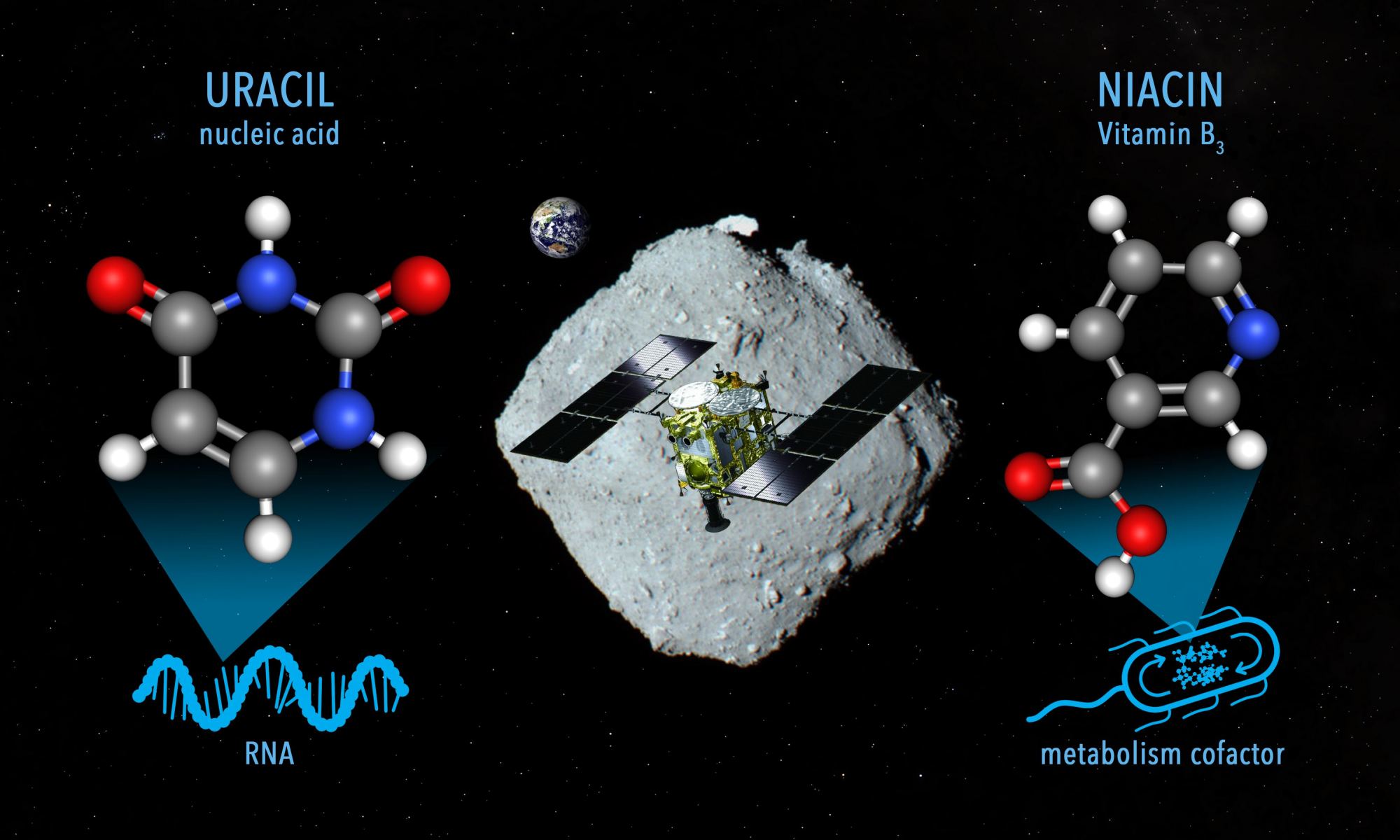In December 2020, JAXA’s Hayabusa2 spacecraft delivered a pristine sample of otherworldly dust and rock from asteroid Ryugu to Earth. Scientists have since had the opportunity to study the sample, and announced last week that the asteroid contains organic molecules important for life. In particular, they discovered Niacin, otherwise known as vitamin B3, and Uracil, one of the four core components of ribonucleic acid (RNA).
Niacin, which is found in our diets via nuts, seeds, legumes, and meats, helps human bodies build fat and create energy from the nutrients we eat. It also plays a role in repairing DNA.
Uracil, as one of the building blocks of RNA, plays an important function in our bodies too. It carries instructions from DNA, which is contained inside the nucleus of our cells, to the cells’ ribosome, where proteins are made.

Similar molecules have been discovered in extraterrestrial objects before, but the pristine condition of Hayabusa2’s sample makes the evidence much more compelling.
“Scientists have previously found nucleobases and vitamins in certain carbon-rich meteorites, but there was always the question of contamination by exposure to the Earth’s environment,” said Yasuhiro Oba, Associate Professor at Hokkaido University, who led the study.
“Since the Hayabusa2 spacecraft collected two samples directly from asteroid Ryugu and delivered them to Earth in sealed capsules, contamination can be ruled out,” he explained.
Hayabusa2’s sampling technique involved flying the spacecraft low to the asteroid’s surface, then firing a projectile at the asteroid, throwing up dust and rock in a debris cloud that could be caught by the spacecraft’s open sampling container. Two samples were taken: one from the surface soil, and another from deeper within the asteroid. To obtain the deep sample, the spacecraft fire a larger projectile at Ryugu to form a crater, and then took a sample from the crater floor.

Uracil was found in both the surface and subsurface samples, though it was more prevalent in the subsurface. In other words, ultraviolet photons and cosmic rays may have caused the Uracil on the asteroid’s surface to begin to decay.
“Organic molecules in the surface materials would have experienced energetic processes more extensively than those in the subsurface materials, which potentially causes preferential degradation of molecules at the surface,” the researchers wrote.
Other organic molecules discovered in the samples include amino acids, amines, and carboxylic acids.
The researchers compared the Ryugu samples with previously studied meteorites – especially the Orgueil meteorite, which fell to Earth in southern France in 1864. The similarities are striking, though they are not identical, and suggest that the meteorite came from a similar C-type asteroid.
Studies of carbonaceous chondrite meteorites like the Orgueil sample, and of asteroids like Ryugu, are helping piece together how the building blocks of life ended up on Earth in the first place. Vitamin B3, Uracil, and other organic molecules are present elsewhere in the Solar System, and have been for a long time. This new research suggests we probably have asteroids like Ryugu to thank for these life-giving compounds here at home.
Learn More:
Yasuhiro Obo et al. “Uracil in the carbonaceous asteroid (162173) Ryugu,” Nature Communications.
“Uracil found in Ryugu samples.” Hokkaido University.
Feature Image: A conceptual image for sampling materials on the asteroid Ryugu containing uracil and niacin by the Hayabusa2 spacecraft (NASA Goddard/JAXA/Dan Gallagher).


Wow – the organics just keep on coming! I can wait until we get sample from Bennu and see what will we can find! I so want a sample return from water from a Europan geyser!